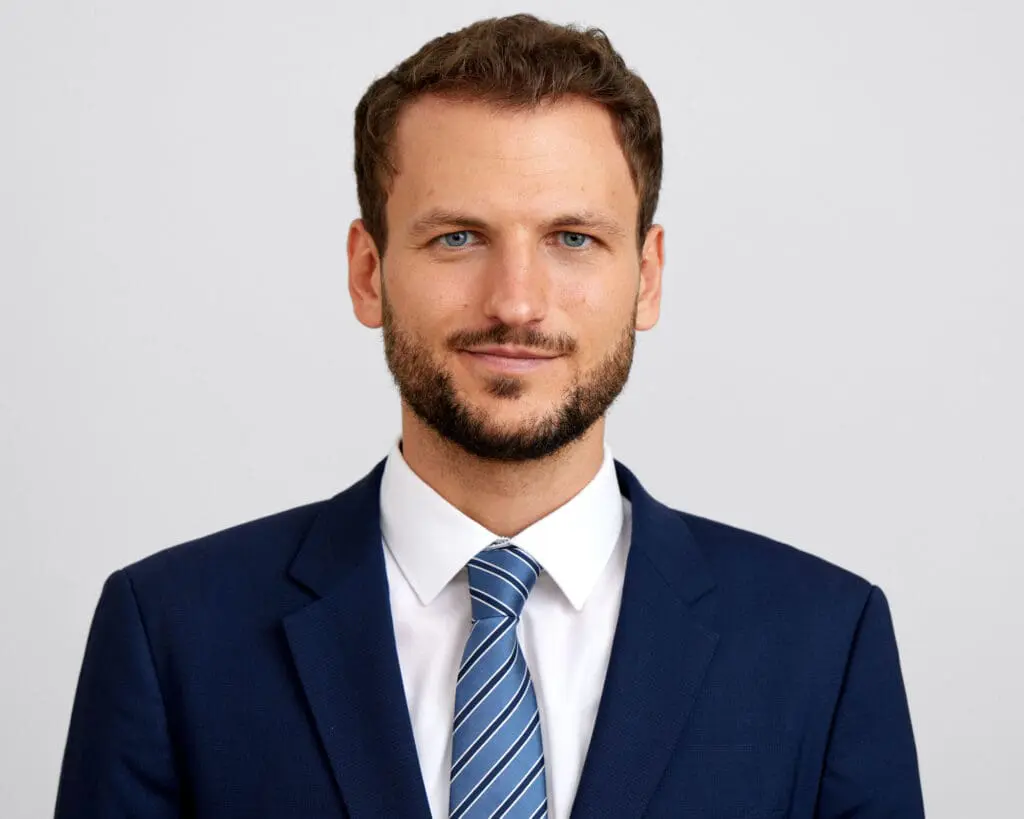Civil law aspects of medical liability
Compensation for damages
Under certain conditions, the treating physician can be held liable if damage occurs:
Damage is defined as any disadvantage suffered by someone in terms of their assets, rights or person. In the medical context, damage consists of a disadvantage associated with a deterioration in the patient’s state of health.
A doctor is only liable for such damage if he acts unlawfully (i.e. by breaching the treatment contract or a law) and has culpably caused this damage. Negligent or even intentional conduct constitutes culpable conduct.
In addition, the doctor is only liable for damages to the patient that were caused or contributed to by his breach of duty of care, i.e. were causal for the damage. A treatment error is the cause of the damage if the damage would not have occurred without this treatment. As it is difficult to prove causality in practice, it is sufficient according to case law if the doctor’s conduct “predominantly probably” caused the damage to health.
If a patient has suffered damage during medical treatment, the doctor treating the patient is liable to pay compensation if his conduct violates the requirements or prohibitions of the legal system and he has therefore acted unlawfully.
In addition, the doctor must have acted culpabletoa certain extent. A doctor is at fault if he could or should have prevented the unlawful conduct that caused the damage. Specifically, misconduct exists if the doctor has not acted in accordance with medical science or experience or if he has neglected the care of a prudent, conscientious average doctor in the specific situation.
Treatment errors
A doctor commits malpractice if he violates recognized rules of medical science (Sec 49 para 1 of the Austrian Medical Practitioner’s Law [ÄrzteG]) and the “medical art”. Alternatively, the results of basic research, applied research and “medical experience” form the basis for assessing whether a medical error has occurred. In practice, medical guidelines from medical associations are also of particular importance in this context. Under the treatment contract, the doctor owes the “most promising treatment in each case”, which is represented by at least one recognized school of medical science.
Clarification errors
Only the patient’s informed consent to medical treatment justifies the intervention – otherwise it is fundamentally unlawful. Accordingly, it is essential that doctors provide their patients with sufficient and complete information about the treatment, its prospects of success and risks. Sufficient information must be comprehensive enough to enable the patient to understand the implications of their declaration, knowing the essential circumstances and consequences of the proposed treatment.
Without sufficient information about the nature and consequences of the illness and the medical intervention, the patient cannot give valid consent to the treatment. Liability for lack of and inadequate information also applies if the treatment itself was carried out in a professional manner, i.e. there is no treatment error.
Under certain circumstances, however, the obligation to provide information does not apply. This is the case, for example, if it can be assumed that the patient has the necessary prior knowledge based on their medical history and professional training. Nevertheless, caution is required here. Doctors should ensure that they provide conscientious and accurate information in order to avoid liability risks in this regard.
Criminal law aspects of medical liability
If a doctor acts improperly during treatment and thereby causes harm to their patient, this can also have consequences under criminal law. Negligence offenses in particular play an important role here, which is why careful treatment must always be guaranteed.
The following are particularly relevant offenses that occur in practice and are brought against doctors in cases of suspected misconduct:
- (Grossly) negligent assault (Sec 88 of the Austrian Criminal Code (StGB): This offense occurs when a doctor impairs the physical integrity of a patient by violating the required duty of care without having intent to do so. Gross negligence means that the doctor fails to exercise due care in a particularly serious manner. An example would be overlooking clear symptoms or failing to observe basic medical standards, which leads to avoidable damage to health.
- (Grossly) negligent killing (Sec 80 StGB): This offense consists of the doctor causing the death of a patient through negligent behavior. Gross negligence exists if the doctor violates the duty of care to a particularly high degree, for example by making serious treatment errors or ignoring essential safety precautions. In such cases, the patient’s death could have been avoided by complying with the medical duty of care.
- Medical treatment without consent (Sec 110 StGB): If a doctor treats a patient without the patient’s consent, albeit in accordance with the rules of medical science, he commits the intentional offense of unauthorized medical treatment. If the perpetrator has not obtained the consent of the person being treated on the assumption that delaying treatment would seriously endanger the life or health of the patient (emergency), he is only to be punished if the alleged danger did not exist, and he could have been aware of this if he had exercised due care.
Compliance as prevention
Effective compliance measures are essential in the medical field to minimize liability risks and avoid legal disputes. Careful documentation ofall treatment procedures, including comprehensive explanatory discussions with the patient, forms the basis for this. In addition, regular training courses and workshops should be held for all medical staff to ensure that everyone involved is informed about current legal requirements and medical standards. The implementation of internal control mechanisms, such as second opinions for complex diagnoses or interventions, can also significantly reduce the risk of errors.
Finally, it is advisable to establish clear guidelines for dealing with suspected cases or complaints to be able to react to potential problems in good time and promote a transparent error culture. Such measures not only help to reduce risk, but also strengthen patient confidence in the quality of treatment.
When is it advisable to consult a lawyer specializing in medical malpractice law?
A lawyer specializing in medical malpractice law should always be consulted when legal uncertainties arise in connection with medical treatment or information errors. This applies both to affected doctors who must defend themselves against possible accusations and to patients who wish to assert claims for damages.
If criminal charges are brought, an experienced lawyer in medical criminal law can help to legally classify the often complex facts of the case, assess the chances of success of the proceedings and choose the right strategy for the line of defense. In the case of criminal allegations such as negligent bodily injury or negligent killing, it is crucial to obtain legal support at an early stage to minimize liability risks and develop an appropriate defense strategy.




